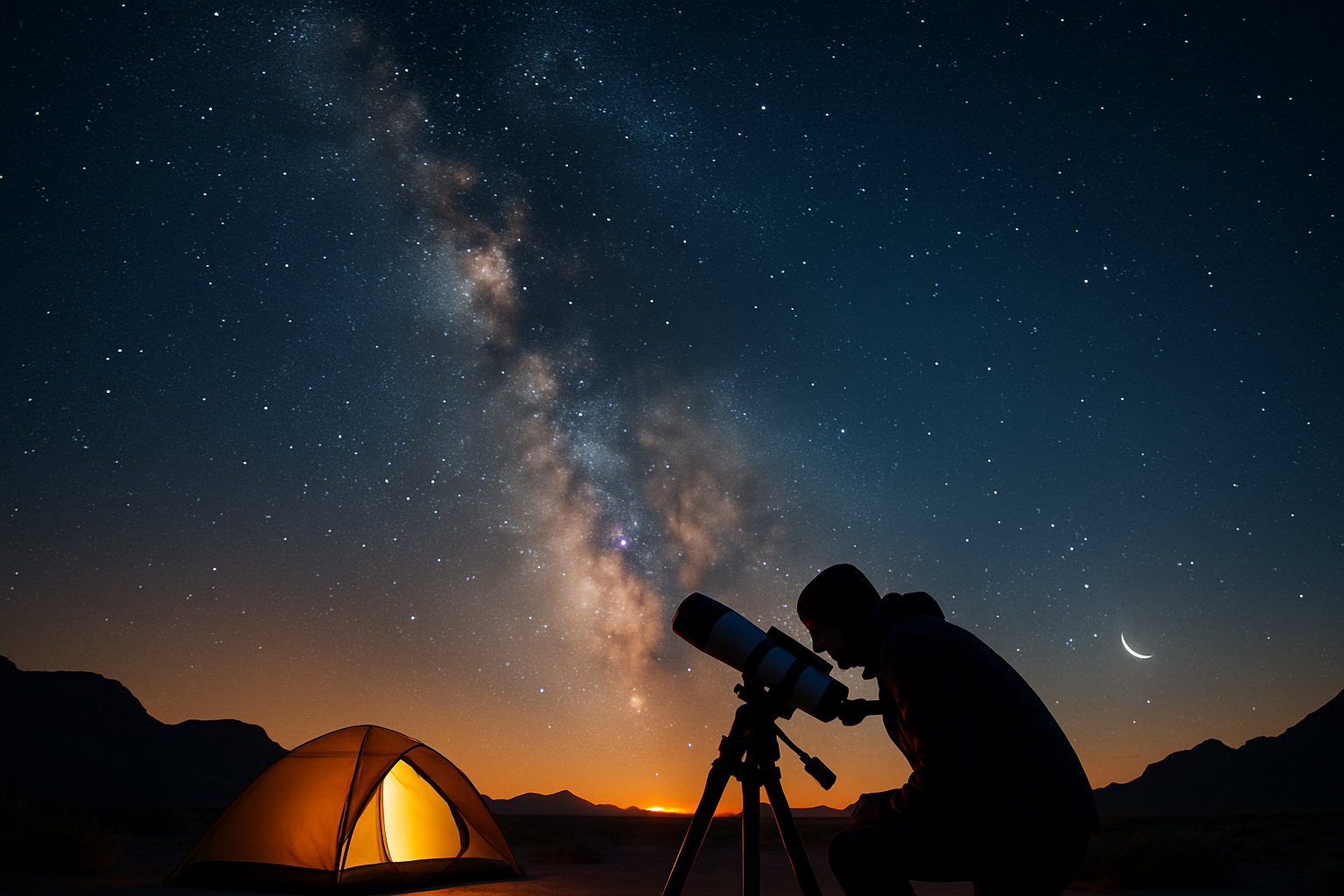Astrotourism: The Next Frontier in Travel
Gazing at the stars has captivated humanity for millennia, but a new travel trend is taking our fascination with the cosmos to new heights. Astrotourism, the practice of traveling to destinations with dark skies for stargazing and astronomical experiences, is rapidly gaining popularity among adventure seekers and space enthusiasts alike. This emerging niche combines the thrill of exploration with the awe-inspiring beauty of the universe, offering travelers a unique perspective on our place in the cosmos.

Dark Sky Destinations
The International Dark-Sky Association (IDA) has been instrumental in promoting astrotourism by designating Dark Sky Places around the world. These locations, which include parks, reserves, and communities, are committed to preserving the quality of their night skies through responsible lighting policies and public education. Some popular Dark Sky destinations include:
-
Atacama Desert, Chile
-
NamibRand Nature Reserve, Namibia
-
Aoraki Mackenzie International Dark Sky Reserve, New Zealand
-
Cherry Springs State Park, Pennsylvania, USA
-
Pic du Midi, France
These destinations offer visitors the chance to see celestial wonders like the Milky Way, meteor showers, and even the aurora borealis in exceptional clarity.
The Astrotourism Experience
Astrotourism experiences can range from casual stargazing to intensive astronomy courses. Many destinations offer guided night sky tours, where expert astronomers use powerful telescopes to showcase planets, galaxies, and nebulae. Some observatories and planetariums have begun offering overnight stays, allowing visitors to engage in hands-on astronomical research.
For the more adventurous, astrophotography workshops have become increasingly popular. These sessions teach travelers how to capture stunning images of the night sky, combining technical photography skills with an appreciation for celestial phenomena.
Economic and Environmental Impact
The growth of astrotourism has had a significant positive impact on local economies, particularly in rural areas. Many remote communities that previously struggled to attract visitors are now benefiting from the influx of stargazers. This has led to the development of specialized accommodations, such as astronomy-themed hotels and glass-domed igloos designed for nighttime viewing.
Environmentally, astrotourism promotes conservation efforts and raises awareness about light pollution. As more people experience the beauty of truly dark skies, there’s a growing push for better lighting practices in urban areas to reduce light pollution and preserve our view of the stars.
Challenges and Considerations
While astrotourism offers many benefits, it also faces challenges. Weather dependency is a significant factor, as cloudy skies can derail stargazing plans. Additionally, the increasing popularity of some dark sky destinations has led to concerns about overcrowding and potential environmental impact.
To address these issues, many astrotourism providers are implementing sustainable practices and visitor management strategies. These include limiting group sizes, using eco-friendly lighting, and educating visitors about responsible stargazing practices.
Celestial Travel Tips
-
Plan your trip around lunar phases; a new moon offers the darkest skies for optimal stargazing
-
Bring warm clothing, even in summer, as temperatures can drop significantly at night
-
Allow time for your eyes to adjust to the darkness; it can take up to 30 minutes for full dark adaptation
-
Use red-light flashlights to preserve your night vision
-
Consider downloading astronomy apps to help identify constellations and planets
-
Book accommodations with astronomy-friendly features, such as telescope rentals or star-viewing decks
Astrotourism represents a unique convergence of science, nature, and adventure. As we continue to explore the frontiers of space, this emerging travel trend offers a tangible way for individuals to connect with the cosmos. By fostering a deeper appreciation for the night sky, astrotourism not only provides unforgettable travel experiences but also encourages a more thoughtful approach to our relationship with the natural world and our place in the universe.






